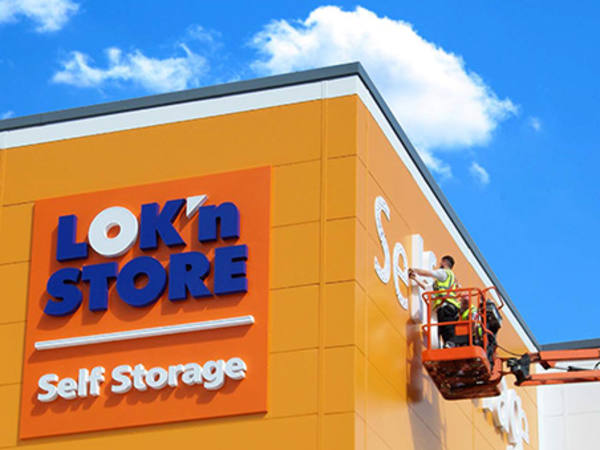- Spate of flotations this year could indicate a buoyant post-lockdown investment landscape
- Listings come amid a wave of private-equity backed takeovers of London-quoted companies
‘IPO’: an acronym used hundreds of times already this year.
In the US, the past three months have marked the most active second quarter since the turn of the century with 113 initial public offerings. New issuers raised $39.9bn (£28.8bn), according to investment bank Renaissance Capital; the highest figure ever reported for Q2.
Specifically, it was the busiest quarter for technology companies to ring the opening bell in at least two decades. Small wonder, perhaps, as online businesses have worked to attract new investors with tales of their intense growth spurts during the Covid-19 pandemic.
Yet flotations have not been confined to American soil. This side of the Atlantic, 48 companies went public in London between New Year’s Day and 28 June. That compares with 43 IPOs in the UK during the whole of 2020, including both main market and Alternative Investment Market (Aim) listings.
And that’s before mentioning the businesses that have recently announced their intention to list without yet having their shares admitted.
Several companies unveiled plans to float on the London bourse in June. Examples include money transfer specialist Wise, online building materials supplier CMOStores.com and – just this week – private equity fund Bridgepoint, which manages €27.4bn (£23.5bn) in assets, indicated that it wants to raise £300m to pay down debts and invest further.
Such a flurry of stock exchange debuts might give the impression of a healthier and more buoyant market, as the immediate shock of coronavirus and the after-effects of Brexit are continually assimilated into economic and corporate growth expectations.
It helps that consumers appear to have money ready to spend. The UK savings ratio, which measures the income households have saved as a proportion of disposal income, rose to 19.9 per cent in the first quarter. That’s up from 16.1 per cent in the fourth quarter of last year, according to the latest figures from the Office for National Statistics (ONS).
It is also possible, or indeed probable, that IPO plans which had been earmarked for 2020 were put on the backburner as the deadly virus took hold, giving rise to considerable pent-up demand.
Has the quality of IPOs changed?
Adding to that sense of buoyancy, the amount of money raised via this year’s IPOs has already exceeded that raised for the whole of 2020. According to data shared with Investors’ Chronicle by the London Stock Exchange, £9.44bn had been raised as of 28 June; the highest first half total IPO capital raised in London since 2014 (£13.78bn). Last year’s full roster of IPOs raised the lesser sum of £9.38bn.
That said, these total figures include money raised from new shares sold at listing as well as secondary sales, for example from existing pre-IPO shareholders. Looking only at new money raised, IPO funds came in at £3.57bn.
Moreover, while some businesses have performed relatively well since IPO in 2021 – such as cyber-security firm Darktrace (DARK), consumer review website Trustpilot (TRST) and online greeting card retailer Moonpig (MOON) – others have struggled after coming to market.
Mixed bag of listings
Deliveroo’s (ROO) dismal float in March is a case in point. The takeaway food platform’s shares dropped more than a quarter on its opening day of trading and still sit 26 per cent below their issue price of 390p. That’s despite a recent uptick following the good news (for the company, less so its couriers) that a UK court has classified its riders as self-employed rather than permanent staff eligible for workers’ rights.
Admittedly, some of Deliveroo’s challenges are arguably unique to its business model. It can be misleading to extrapolate too many similarities between one IPO’s difficulties and the next. But the company may also have fallen victim to a change of sentiment among investors. While the description of something as a fast-growing ‘tech stock’ might once have sent its valuation through the roof, the market has seemingly sobered up – taking the head off overly frothy prices.
Thus, while the number of IPOs has risen, cynics may question the quality of various of this year’s listings. More so amid a burst of private-equity buy-out activity, which has drawn the ire of fund managers and ordinary investors concerned that quality companies are being taken off the public market at the same time as new ones arrive.
Improving retail investor access
That debate about IPO market health versus quality is particularly pertinent to retail shareholders now that access to new listings has been democratised by mechanisms like PrimaryBid.
Allowing individuals to buy into IPOs could help smaller companies obtain financing faster in the UK, giving them the chance to tell their story on a public stage. Simultaneously, those IPOs can offer would-be shareholders a chance to inject their money into companies in their growth stages, tapping into promising industries or trends.
PrimaryBid, a partner of the London Stock Exchange, grants access to public company fundraisings and IPOs on the same terms as banks and fund houses. Elsewhere, crowdfunding business Crowdcube intends to launch a platform for private investors to get involved in new floats.
Crowdcube’s move comes after Chancellor Rishi Sunak launched the UK Listings Review last November, commissioning Lord Hill of Oareford to look at how to make the City more attractive for equity listings. In his findings released in March, Lord Hill mooted steps to “empower” retail investors – noting that the number of employees with exposure to capital markets via auto-enrolment pensions rose significantly from 10.7m in 2012 18.7m in 2018.
But on the other side of the coin, improving retail shareholder access means that private investors are exposed both to the potential rewards of flotations and to the risks that come with poor-performing listings.
For Liberum analyst David Mak, “timing is everything”. In a May note, he wrote that “investing in an IPO that lists immediately before or during a period of turmoil predicates poor long-term share price performance, whilst investing in one shortly after such a period (like this year and next) provides an attractive setup”.
The best and worst of 2021’s IPOs
In any case, IPO performance can be a mixed bag and investing at an early stage of public life is not without considerable risk. The trouble is that making the right bets can reap benefits. Would-be investors thus need to closely consider the rationale for investing.
Among the questions worth asking sit a few key points: what is the path to commercialisation, revenue growth, profitability or any other metric pertinent to the company in question? What is the market opportunity? What is the competitive landscape and what are the company’s barriers to entry? Why are the existing shareholders taking the company to market now? What are their rights in relation to the business?
In his report this year, Lord Hill included a recommendation to allow dual-class share structures in the premium listing of the London bourse. Because Matthew Moulding, founder of The Hut Group (THG) (which floated last year) has a ‘golden share’ that allows him to block shareholder resolutions, the group could not join the FTSE 100 index.
But while London’s rules around founder shares have been seen as a buffer to major tech listings, concerns remain about giving founders and board-members too much control.
In any case, one of the shared attributes of many of this year’s IPOs has been their digitally-focused operations. Some such companies were already capitalising on structural shifts to online living before the pandemic struck and have enjoyed an acceleration in activity while consumers stayed put under ‘stay at home’ orders.
This was the case for online bathrooms business Victorian Plumbing (VIC), which debuted on 22 June in Aim’s biggest ever float. The group’s shares rose 20 per cent on their opening day from an offer price of 262p apiece.
Victorian Plumbing sells more than 24,000 bathroom-related products from 125 brands. It is the UK’s second-largest bathroom products retailer and is estimated to have 14 per cent market share so far.
Meanwhile, the intensifying shift of everyday activities into the digital realm has driven demand for and investor interest in cyber-security technology. Good news for Darktrace, the autonomous cyber-defence platform whose shares also jumped on its opening day of trading in April. The company is currently worth £3.25bn.
| The ups and downs of this year's UK IPOs | ||||||
| Better performers so far | ||||||
| Company | Ticker | Exchange | Description | Month of IPO | Gain versus offer price (%) | |
| Darktrace | DARK | Main market | Cyber-security | April | 86% | |
| Dr Martens | DOCS | Main market | Shoe retailer | January | 21% | |
| Moonpig | MOON | Main market | Greeting cards e-tailer | February | 25% | |
| Trustpilot | TRST | Main market | Consumer review website | March | 29% | |
| Worse performers so far | ||||||
| Company | Ticker | Exchange | Description | Month of IPO | Gain versus offer price (%) | |
| Alphawave IP | AWE | Main market | Semiconductor designer | May | -16% | |
| Deliveroo | ROO | Main market | Food delivery app | March | -26% | |
| Pensionbee | PBEE | Main market | Online pensions | April | -7% | |
| Source: Companies, Factset | ||||||
| Share price gains shown as of 30 June 2021 | ||||||
Website sales have also been a boon for Dr Martens (DOCS), the iconic footwear brand which floated in London this year. True, the shares dropped a tenth on the group’s recent 12-month results as IPO costs cut into profits. But as this magazine argued in April, it's quite possible that former private-equity owners took it to market well managed and well invested rather than past its peak.
That said, online retailers (or retailers with an online element) aren’t a homogenous bunch. At the other end of the scale, some such companies have struggled on IPO day – Made.com being one of them.
Shares in the digital furniture retailer dropped 8 per cent on its listing day in June even after they were priced at the lower end of their range at 200p. Founded in 2010, Made says it is the most popular home and living band for UK millennials. Euromonitor data puts the furniture and homeware market for offline and online at £504bn, with £151bn attributable to Europe alone.
For Susannah Streeter, senior investment and markets analyst at Hargreaves Lansdown, “Made.com aims to capitalise on the accelerated shift to e-commerce and the high demand for home makeovers witnessed over the pandemic”. But “timing is everything for an IPO, and its arrival as a new piece of stock market furniture comes after two disappointing debuts in the form of Deliveroo and [semiconductor design business] Alphawave IP”.
Streeter added that “there is also now greater competition in the furniture space” with the high-street open once more. Not to mention online rivals from Dunelm (DNLM) to US-quoted Wayfair (US:W), whose shares have risen 19 per cent and 56 per cent respectively in the past year.
Will the pace continue?
The spate of IPOs this year has been a boon for London, indicating that it is still viewed as an attractive investment market. How far that momentum will continue remains to be seen. In recent weeks, gold producer Nord Gold postponed its flotation, with management noting that “recent central bank comments indicating an acceleration in expected interest rate rises have created significant uncertainty and volatility in the resources sector”.
Similarly, Marex Spectron decided not to float, while fuel cell company Elcogen and miner Tungsten have also delayed their plans. Time will tell whether such decisions constitute the early signs of IPO fatigue.







